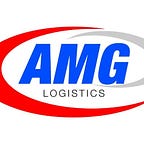3 Ways to drill down costs in the oil & gas supply chains
3 Ways to drill down costs in the oil & gas supply chains
The biggest issue of the oil and gas business a few years ago was rising energy prices. Oil prices have plunged to their lowest levels in years today. Financial returns are also influenced by new markets, extraction advances, and evolving geopolitical ties. As a result of the consequent market instability, the energy sector is being forced to cut costs through optimizing supply chain efficiencies. From upstream (exploration and production) to downstream (refining and marketing), the oil and gas sector faces a variety of logistical issues.
Here are three ways businesses are streamlining their supply networks and increasing financial predictability.
Compliance improvement
Oil and gas producers must deal with changing regulations, multiple government agencies, and complex import and export requirements from many countries. Many materials used in the oil and gas industry are highly controlled, including explosives and hazardous or radioactive materials require an export license. Avoiding shipping to embargoed countries and entities remains a third export compliance consideration.
As previously said, the speed of the supply chain may have a significant impact on an oil and gas company’s bottom line. An overseas business has extra obstacles, including customs clearance, in addition to the distance and geographic logistics constraints. It might be difficult to get new components through customs promptly. It is critical to be aware of each country’s customs regulations prior to clearance. It is critical to use technology to emphasize legislation and paperwork needs before an incident happens.
The customs clearance bottleneck may be practically eliminated by using the same system to manage compliance information and supply chain execution. Customs clearance challenges may stymie even the most well-oiled global supply systems.
Increasing supplier cooperation
Purchasing items from overseas vendors is difficult due to the diversity of supplier bases, geographic locations, time zones, and government laws. Communication issues, inventory shortages, and incorrect product documentation can all result from these difficulties.
An interactive supplier portal facilitates contact with partners and allows for quick decisions on topics such as inventory diversion and bottleneck resolution. Buyers may control all aspects of the purchase order (PO) process with their partners by extending purchasing and compliance processes to incoming trade partners. Consequently, cycle times are shorter, service levels are higher, supply chain execution costs are lower, regulatory risks are fewer, and compliance activities are better supported.
Increasing supply chain visibility
Companies in the oil and gas supply chain must balance the high cost of downtime with the cost of carrying slow-moving components and inventory. Losing a drilling day or even a week of work due to component shortages may be the difference between profit and loss, and corporations can lose millions of naira in sales if their supply fails to meet demand.
To enable full tracking and monitoring of the movement of products, companies require a clear visibility into the activities of suppliers, projects, customers, and business processes. Real-time tracking and the capacity to resolve issues as they arise are made possible by using technology. Companies may benefit from lower safety stock inventory levels, shorter incoming supply lead times and order cycle times, and cheaper purchasing and order expediting costs with real-time supply chain information.
These three strategies can help you save expenses and flatten your supply chain’s variability. A global trade management solution may help by simplifying and automating company activities such as compliance with global import and export rules, supplier management, and supply chain visibility.
For more information on oil & gas logistics, visit https://amglogistic.com/amg-dsv-oil-gas/
Share this post:
Share on linkedin
LinkedIn
Share on facebook
Facebook
Share on twitter
Twitter
Share on pinterest
Pinterest
Share on tumblr
Tumblr
AMG Logistics is a Lagos-based TRACE certified logistics company. Our services include Freight Forwarding, Customs Clearance, Trucking, Distribution, and Warehousing within Nigeria.
CONTACT US
Tel: +234 909 199 9866
sales.nigeria@amglogistics.com
+234 909 199 9866
customer.services@amglogistics.com
+234 909 199 9841
cs.abuja@amglogistics.com
+234 909 199 9805
documentation.department@amglogistics.com
+234 909 199 9813
AMG Logistics Locations
HEAD OFFICE
7c Creek Road
Apapa
Lagos
ABUJA BRANCH
B3 ground floor
84 Keane Nkrumah Street
Asokoro Business & Lifestyle centre
Abuja
PORT HARCOURT BRANCH
NAMA Admin Building
Port Harcourt International Airport
Omagwa
River State
LET US CONTACT YOU
CONTACT US NOW
